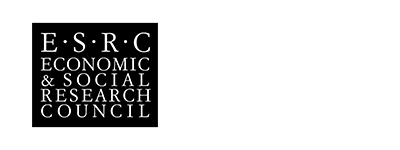Authored by Andy Shipley
Today we have another guest piece, written by Andy Shipley, our Nature Narratives collaborator and founder of Natural Inclusion – a brilliant enterprise offering nature connection and sensory immersion activities, workshops and group facilitation.
Andy wrote this while reflecting on what the idea of the ‘Open Mountain’ means to him. So, in Andy’s words…
“When I allow my senses to open wide and supplant the distraction of inner chatter, I can experience the natural world pretty much whenever I find myself outdoors. A waft of breeze or a single bird call serve to reconnect me with the living world which, despite the relentless march of technology, still enfolds and supports us.
But like most of our species, or at least those who inhabit the industrial nations, I spend much of my time unconsciously excluded from nature. The creation of such complex physical and pervasive virtual environments seems to have driven a process of rapid sensory adaptation, dislocating us from a life rooted in an intimate relationship with the natural world. Where once we relied upon an ability to draw on all our senses to make decisions, we are now forced to think and act at increasingly rapid speeds, with minimal sensory information.
The idea of Open Mountain for me conveys a sense of dynamic changeability, where nature can at one moment be majestically benign, but almost instantaneously become monstrously perilous. If we step onto her flanks with anything short of total presence to the Mountain’s moods and the rhythms and patterns that could warn of impending change, we place ourselves in unconscious jeopardy. Our species continues to stride ahead, its gaze fixed upon the summit of technological progress, seemingly unconscious to warnings of impending peril.
Once, we knew how to use all our senses for survival. The capacity to notice patterns in nature meant the difference between life and death. A bird's alarm call, scurrying sounds in the undergrowth or musk scent on the air, combined to divine the presence of prey or predator. The freshening of the breeze on a cheek and scent of oncoming rain could herald a weather change, warning us to seek shelter or prepare our homes for an imminent storm.
Today’s world allows little time for such multi-sensory analysis. Instead, we see, we act. And whilst in many situations visual information serves well enough to get the job done, its dominance at the expense of our other sensory abilities is, I believe, hindering our openness to the world and those with whom we share it.
As infants we yearn to explore with every sense, equally and fully. Watch any toddler interacting with an object for the first time. See how much they want to connect with it and know it thoroughly, to hear what it sounds like; shaking it, beating the ground with it. To explore its shape and various textures, not only with their fingers but with their more sensitive lips and tongues. Seeking out and sensually consuming every knowable feature of it.
I wonder what our society’s relationship with the natural world would be like if, throughout our lives, we continued – like children – to interact with it on multi-sensory terms. How much richer would our understanding be, if, as well as describing an object by its shape and colour, we were equally concerned with qualities such as odour, resonance, surface texture and spatial context?
And in turn, what questions might our awareness of these properties raise for us? Take the oak tree for example. We are taught to recognise it by its distinct outline, the unique shape of its leaf and of course by its fruit, the acorn. But does the oak have a distinct and unique scent? I suspect it might! When its canopy is played by the breeze, is the sound produced distinctly oakish? Perhaps!
I am visually impaired. There was a time when I could see. Consequently I, like my sighted peers, was taught to understand the world on visual terms. My appreciation of nature was principally formed around its visual qualities. By necessity, visual impairment has imposed upon me the practice of drawing upon all my senses to inform my actions. In the interest of self-preservation, I am deterred from the kind of instant, unconsidered action that 2020 vision might tempt me into.
This is not an evolution of super-powers, just the ability to attend to all my senses, to perceive a fuller picture of the situation. Having to listen for oncoming traffic when crossing the road or feeling for changes in surface texture under foot, not only serves to keep me safe, it opens me up to the sensory panorama.
The pit-pat of a dog’s paws passing by, the scent of a hawthorn and the warmth of the sun on my back, add additional granularity to the picture, and locate me in space and time. Placing me in a multi-sensory web of information and experience – a World Wild Web I might be denied access to were I to have 2020 vision and proceed with my eyes upon a smart-phone or the car ahead. Effectively blinkered, deafened, numbed and excluded from the all-encompassing dynamic sensory world.
Those of us with visual impairment are in possession of a gift, the sharing of which, I believe could benefit society and the natural world immeasurably. That gift is the potential to overcome society’s self-imposed sensory exclusion from nature, as guides to the rediscovery of the value of a multi-sensory relationship with the world.
Many who have joined me for the nature sensing experiences I have led, would certainly indicate that this might be the case! However, our vision-centric society continues to characterise visual impairment as a deficit, rather than a different kind of perception. This not only perpetuates the exclusion of the visually impaired, it exiles our species from the potential unleashing of a new sensory relationship with the more-than-human world.
If, however, you are able to embrace this proposition, the opportunity exists for those of us who have formed a multi-sensory relationship with the world, to dismantle the barriers that exclude us all, and reawaken your capacity to step onto the Mountain more consciously than you can imagine. All you have to do is accept my invitation to come and connect with the World Wild Web!”



